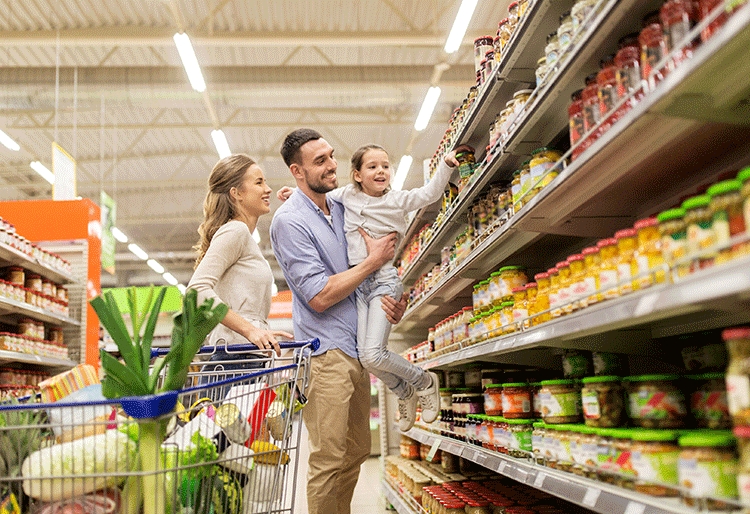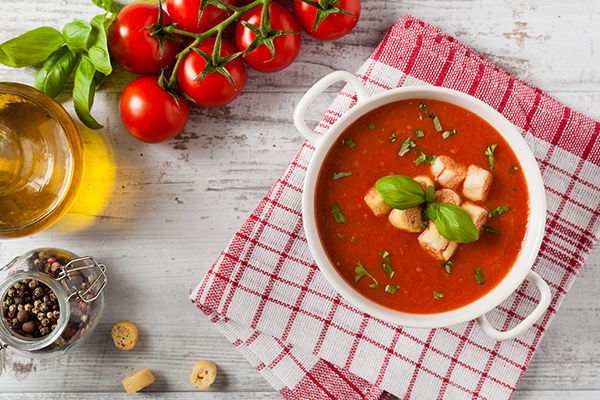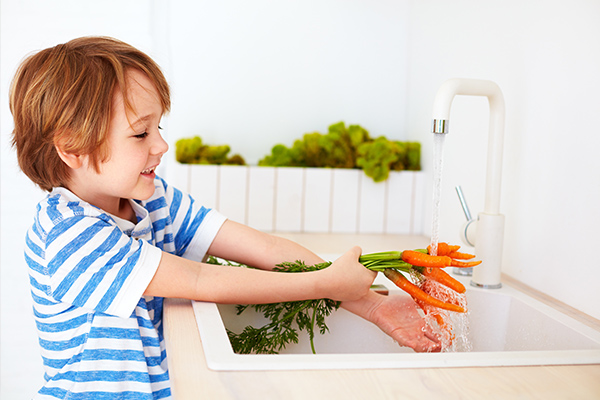Summer shopping tips
Ten ways to avoid food poisoning during the hot weather
how to shop
Share

Unfortunately, food poisoning occurs all year round, but it is more frequent during the summer months due to the high temperatures which favour the growth of microorganisms. Also, because it is harder to store cold foods at the correct temperature, as well as not being careful about preventive measures and hygiene.
Danger zone: food we need to keep an eye on
- Foods made with raw eggs, such as mayonnaise, sauces and creams. If you buy them ready-made, you should consume quickly. If they are homemade, it is best to dispose of any leftovers.
- Salads made with raw vegetables and other ingredients such as pasta, cheese and sausages, should be prepared when you are going to eat them, and raw vegetables should be washed thoroughly.
- Fruit and vegetables should be kept in the fridge, keep them in the least cold area (drawers).
- Seafood, especially shellfish.
- Raw or undercooked fish, such as anchovies in vinegar, which needs to be frozen several days before preparation to avoid anisakis.
-Raw meat and pastries, which should be chilled or frozen.
- Gazpachos, especially homemade gazpachos, should always be kept in the fridge.
- Ice cream, smoothies, horchata and iced drinks, as they are very sensitive to temperature fluctuations.
-The product packaging you buy needs to be in perfect condition, without dents or bumps, and check the expiry dates.
- Sequence of purchase: firstly, purchase non-perishable products, then fresh foods and, lastly, frozen food.
- Do not put food and drugstore products in the same bag.

Risk of food contamination, 'the golden rules’
In order to avoid illnesses or food poisoning caused by improper handling and preservation of food, the Spanish Agency for Consumption, Food Safety and Nutrition (Aecosan) has provided some 'golden rules', a kind of ten tips, so that you can enjoy a problem-free summer:
1. Eat food that has been treated and handled hygienically.
2. Cook food correctly, reaching a minimum of 70oC in the middle of the product.
3. Eat food immediately after cooking to avoid the proliferation of germs, and never leave it at room temperature.
4. Foods that cannot be eaten immediately, or leftovers that you want to store, should be kept either hot, above 60o C, or cold, at a maximum temperature of 7o C.
5. Heat cooked foods thoroughly. It is preferable to keep soups, purees and stews warm until they are eaten, than to let them cool and then heat them again. Foods that cannot be heated, such as gazpachos and salads, should be refrigerated.
6. Avoid contact between raw and cooked foods because they can become contaminated, through knives, boards or cloths. The use of paper kitchen towels is recommended.
7. Ensure proper hygiene of the food handler and proper cleaning of all kitchen surfaces and food storage containers.
8. Keep food out of the reach of insects, rodents and pets.
9. Use only drinking water, both for drinking and cooking.
10. Do not eat perishable foods that are exposed to room temperature. In bars, cafeterias, restaurants, etc., all food must be protected by display cabinets and stored in adequately clean conditions.

Clean summer fruit and vegetables well
In summer, our shopping basket usually includes more fruit and vegetables, which we usually eat raw in salads. For this reason, extreme precautions must be taken:
- Even if you are going to peel them, fruit and vegetables should be washed well, under the water tap, to prevent contamination from passing from the knife through food.
- Dry them well with paper towels.
- If you are going to eat raw fruit or vegetables with their skin on, such as lettuce, spinach or cucumber, immerse them for at least 10 minutes in water with a teaspoon of bleach (1.2 to 2 ml) for each litre of water and then rinse them well with plenty of water. The bleach must be 'suitable for the disinfection of drinking water'.
To summarise: in order to ensure food safety, it is essential:
- Maintain the food under the correct cold temperature.
- Wash your hands thoroughly.
-Keep food refrigerated.
- Wash and disinfect fruit and vegetables.
- Check that the product packaging for your purchases is in perfect condition, without dents or bulges and check the expiry dates.
- Sequence of purchase: purchase non-perishable products first, then fresh food and finally frozen food.
- Do not place food and drugstore items in the same bag.






